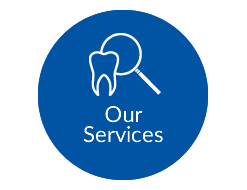What is sleep apnoea?

Obstructive Sleep Apnoea (OSA) is a breathing disorder which occurs during sleep and leads to the narrowing or closure of the upper airway. During sleep, the body’s muscles relax. In people with OSA, this makes the soft tissue at the back of the throat sag and obstruct breathing.
Typically OSA sufferers fall asleep and snore until the airway narrows or closes. Then the lack of oxygen causes them to gasp and partially wake up to re-open the airway. With airflow secured, they return to sleep. This alternation between sleep and semi-arousal continues throughout the sleeping period. OSA sufferers may experience hundreds of these apnoea episodes per night but they are unlikely to remember them. Usually it is the partners of OSA sufferers who first notice the symptoms of OSA. These symptoms include:
- loud snoring
- fragmented sleep, causing morning tiredness, daytime drowsiness and poor cognitive function
- mood disturbances
- social withdrawal
- decreased libido
Critically, if undiagnosed and untreated, OSA may be a contributing factor in systemic and pulmonary hypertension, coronary artery disease, stroke or congestive heart failure. It can also lead to atrial fibrillation, increased motor vehicle accidents and death.
What can I do about sleep apnoea?
If you have sleep apnoea, one option you may consider is a CEPAP machine, which helps you breathe at night. However, not everyone enjoys the feeling of having air blown into them. The machines are also bulky for travelling. However, there are alternatives.
How can dentistry help with sleep apnoea?
Dental intervention can form part of the treatment plan for people with OSA. One of the main forms of dental treatment is a customised dental appliance known as a Mandibular Advancement Splint (MAS).
The Mandibular Advancement Splint is a small device, similar to an orthodontic retainer or a sports mouthguard. It gently moves the lower jaw forward, bringing the tongue with it. This prevents the soft tissue at the back of the throat and the base of the tongue from collapsing back into the airway and obstructing airflow.
What are the benefits of Mandibular Advancement Splints?
Mandibular Advancement Splints offer a number of important benefits to people with OSA. They are:
- safe to use whilst sleeping
- highly effective in eliminating snoring and obstructive sleep apnoea
- custom fitted for optimal comfort
- easily adjusted over time, lessening the need for replacement
- non-invasive and pain-free
- small and discreet
Is a Mandibular Advancement Splint for me?
Dentists will often recommend Mandibular Advancement Splints for people with mild to moderate OSA. Your dentist, often in consultation with a sleep physician, will confirm your suitability for a Mandibular Advancement Splint.
See your doctor first
It is important that you see your GP in the first instance and do a sleep test. This will determine whether or not you have sleep apnoea. Your will then be referred to your dentist for an appliance if required.








